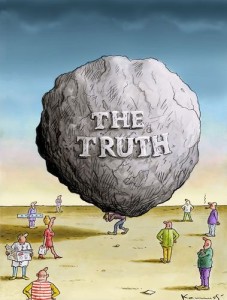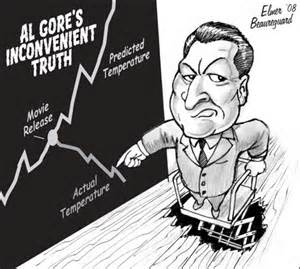Is there a sense in which a geological map can be described as a representation of fact? Can a map define “ground truth?”
A map is a virtual reality representation of the world in two dimensions. A geological map is a human artefact constructed according to the theories of geology and the intellectual abilities of its author. It presents a selection of field observations and is useful to the extent that it is a graphic which aids the prediction of things which cannot be observed. There are different kinds of geological map. With large‑scale maps, the geologist generally aims to visit and outline every significant rock outcrop in the area of the map. For that reason these are often called “fact” maps or even “ground truth” maps although geologists, indeed all scientists, should scrupulously avoid these loaded words. “Observation” or simply “outcrop” map is a much better term. In a small‑scale map, visiting every outcrop would be impossible; generally only a selection of outcrops are examined in the field and interpolations have to be made between the observation points. Such interpolations may be made by simple projection of data or by making use of features seen in remote sensed images of the area, such as satellite or radar imagery, air photographs, aeromagnetic maps and so on. Small‑scale maps thus generally have a much larger interpretational element than large‑scale maps.  “Fact” and the related but more portentous idea of “truth” are loaded words that are too often used as a means asserting authority and pre-empting debate. When you say “this is a fact” you are saying, in effect, “you may not dispute this”. When you say “this is the truth” you are saying in effect “those who disagree with me are perverse deniers, heretics and contrarians”. Recall, from your own experience, how often in debate the expression “the fact is” or “the truth of the matter” is used to introduce a controversial statement that the speaker knows you might well not accept and wants to ring-fence in advance against your anticipated scepticism. Advertisers love talking about “facts and “truth” (see above). Politicians use these words all the time when they wish to convince you of something, but their evidence is open to interpretation – Al Gore’s Global Warming disaster movie “An Inconvenient Truth[1]” is an egregious example. Besides Politicians and advertisers, the most frequent users of the concept of “truth” are promoters of religious concepts, and the word in fact (see, I do it too!) belongs here, in the realms of Faith and Belief. The Scientific method is not based on Faith or Belief but on Evidence. In the real world, truth, like beauty, is in the eye of the beholder. One person’s “ground truth” could be another person’s irrelevant noise.
“Fact” and the related but more portentous idea of “truth” are loaded words that are too often used as a means asserting authority and pre-empting debate. When you say “this is a fact” you are saying, in effect, “you may not dispute this”. When you say “this is the truth” you are saying in effect “those who disagree with me are perverse deniers, heretics and contrarians”. Recall, from your own experience, how often in debate the expression “the fact is” or “the truth of the matter” is used to introduce a controversial statement that the speaker knows you might well not accept and wants to ring-fence in advance against your anticipated scepticism. Advertisers love talking about “facts and “truth” (see above). Politicians use these words all the time when they wish to convince you of something, but their evidence is open to interpretation – Al Gore’s Global Warming disaster movie “An Inconvenient Truth[1]” is an egregious example. Besides Politicians and advertisers, the most frequent users of the concept of “truth” are promoters of religious concepts, and the word in fact (see, I do it too!) belongs here, in the realms of Faith and Belief. The Scientific method is not based on Faith or Belief but on Evidence. In the real world, truth, like beauty, is in the eye of the beholder. One person’s “ground truth” could be another person’s irrelevant noise.  This is not to dispute that an observation can be so well established by universal experience or so attested by overwhelming evidence that for practical everyday purposes it can be called a ‘fact” that few rational people would dispute. The sun rises in the east, there are 365 days-and-a-bit in the year, living matter evolves over time[2], the age of the earth is counted in billions of years are all, by this definition, statements of fact. But when a geologist produces a large-scale outcrop map and calls it “fact” I do not think we have to accept that his or her lines on a map can be described with the same level of certainty.
This is not to dispute that an observation can be so well established by universal experience or so attested by overwhelming evidence that for practical everyday purposes it can be called a ‘fact” that few rational people would dispute. The sun rises in the east, there are 365 days-and-a-bit in the year, living matter evolves over time[2], the age of the earth is counted in billions of years are all, by this definition, statements of fact. But when a geologist produces a large-scale outcrop map and calls it “fact” I do not think we have to accept that his or her lines on a map can be described with the same level of certainty.
On reading the above paragraphs I realise that I have strayed into area of philosophy called “relativism”. Relativism is a quagmire which I would wish to avoid. My point is merely this: in their professional writings Scientists should avoid using the words “fact” and “truth” and accept that all their claims and theories are subject to scepticism and verification by evidence, both that which is known and that which is yet to be found. If only Al Gore had stuck to this rule, he, and a large number of like minded scientists, would not have as much egg on their faces as they have today. 